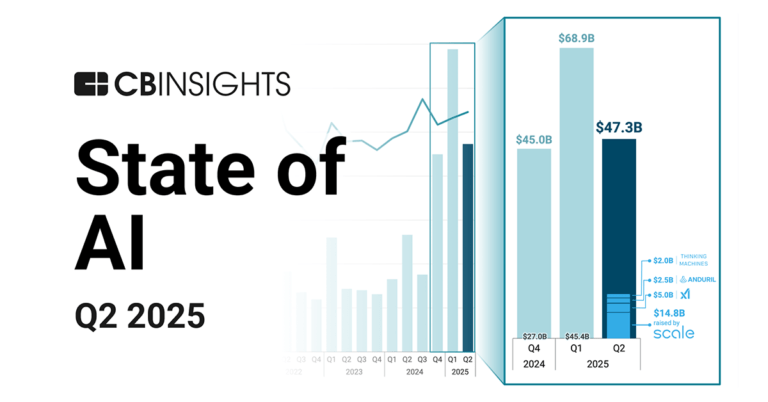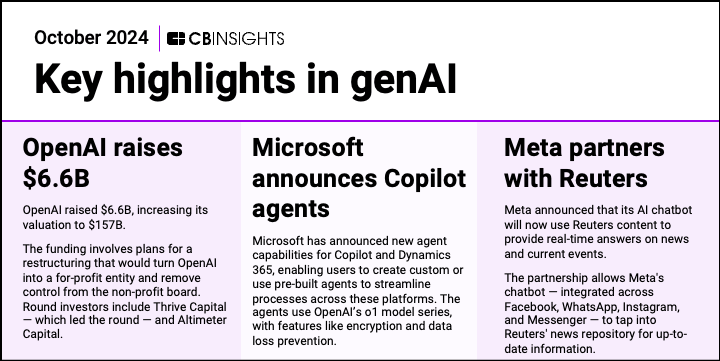
Decagon
Founded Year
2018Stage
Loan | AliveTotal Raised
$26.5MLast Raised
$25M | 4 yrs agoMosaic Score The Mosaic Score is an algorithm that measures the overall financial health and market potential of private companies.
-51 points in the past 30 days
About Decagon
Decagon provides remote software engineering talent to global companies looking to expand their development capacity. The company offers services including recruiting, training, and managing software engineers, with an emphasis on workforce diversity and skill. Decagon's engineers are trained in different technical stacks and work with client teams, adopting their tools and practices. It was founded in 2018 and is based in Lagos, Nigeria.
Loading...
Decagon's Products & Differentiators
Decagon Software Engineering Training
Decagon offers a 6 month intensive in-resident software engineering training that equips high potential individuals with world-class software engineering and leadership skills, combined with practical exposure through real-life projects and corporate placements.
Loading...
Research containing Decagon
Get data-driven expert analysis from the CB Insights Intelligence Unit.
CB Insights Intelligence Analysts have mentioned Decagon in 3 CB Insights research briefs, most recently on Aug 14, 2025.

Aug 14, 2025 report
Book of Scouting Reports: Enterprise AI Agents
Jul 31, 2025 report
State of AI Q2’25 ReportDecagon Patents
Decagon has filed 5 patents.

Application Date | Grant Date | Title | Related Topics | Status |
|---|---|---|---|---|
12/24/2015 | 6/12/2018 | Automotive transmission technologies, Mechanical power transmission, Gears, Mechanisms (engineering), Mechanical power control | Grant |
Application Date | 12/24/2015 |
|---|---|
Grant Date | 6/12/2018 |
Title | |
Related Topics | Automotive transmission technologies, Mechanical power transmission, Gears, Mechanisms (engineering), Mechanical power control |
Status | Grant |
Latest Decagon News
Sep 3, 2025
What It Takes to Join a Top Startup in Africa: Skills, Mindset & Roles Africa’s startup scene is booming, with industries like fintech, e-commerce, and renewable energy leading the way. But standing out in this competitive space requires more than just technical expertise. Here’s a quick breakdown of what you need: Technical Skills: Software development ( React , Node.js , Python ), data analytics, cloud computing, cybersecurity, and mobile development are in high demand. Specializing in tools like AWS , TensorFlow , or Flutter can give you an edge. Soft Skills: Problem-solving, communication, collaboration, and time management are critical for thriving in fast-paced teams. Mindset: Think like an entrepreneur. Be resourceful, resilient, and customer-focused, with a willingness to learn and take calculated risks. Top Roles: Software engineers, product managers, data scientists, and business development leaders are among the most sought-after positions. To succeed, build a strong portfolio, network within the tech ecosystem, and stay current with industry trends. Whether you’re coding, managing products, or driving sales, startups value people who can solve problems and deliver results. The Future of Tech & Jobs in Africa: Opportunities & Challenges Technical Skills You Need to Succeed The tech scene in African startups is constantly evolving, and the skills you need often depend on the industry you’re aiming to join. Whether your sights are set on a fintech powerhouse or a renewable energy disruptor, having the right technical know-how can help you stand out. Most Wanted Technical Skills Software development is at the heart of many African startups. Full-stack developers skilled in React and Node.js are in high demand, especially for mobile-first fintech solutions. Python is also a go-to language, powering everything from backend systems to machine learning models that detect fraud in payment platforms. Data analytics and machine learning are game-changers for understanding customer behavior and improving operations. Startups rely on these skills to analyze transaction data, predict trends, and automate processes. Familiarity with tools like TensorFlow, scikit-learn, and SQL can make you a key player in these efforts. Cloud computing expertise is non-negotiable for startups looking to expand quickly across borders. Knowledge of AWS, Google Cloud , or Azure helps companies scale efficiently, while DevOps skills ensure smooth deployments and system reliability. Cybersecurity knowledge is increasingly important as cyber threats grow, especially in fintech and e-commerce. Understanding encryption, secure coding, and compliance frameworks is essential, particularly in industries with strict regulations. Mobile development is crucial in Africa, where mobile-first strategies dominate. Skills in native iOS and Android development, as well as cross-platform tools like Flutter or React Native , ensure startups can reach their mobile-savvy audience. These skills not only open doors but also prepare you for a dynamic, fast-paced startup environment. Keep Learning and Stay Current Technology is always changing, and African startups often adopt cutting-edge solutions to bypass traditional infrastructure challenges. Online learning platforms are a great way to stay updated. Platforms like Coursera and Udacity offer specialized courses in data science and cloud computing, while freeCodeCamp provides comprehensive web development training – all at your own pace. Africa-focused training programs cater to the unique needs of the local tech scene. ALX has trained thousands of software engineers across the continent, focusing on the practical skills startups need. Decagon in Nigeria offers intensive software engineering programs with strong job placement rates, and Moringa School in Kenya combines tech training with soft skills to prepare students for startup environments. Certifications and open-source contributions can also boost your credibility. AWS certifications highlight cloud expertise, while Google Analytics and Facebook Blueprint certifications showcase digital marketing technical skills. Contributing to GitHub projects not only demonstrates your coding ability but also shows you can collaborate effectively. Technical Skills by Industry Sector Each industry has its own technical priorities, and knowing what matters most can help you focus your learning. Technical Skill Very High The renewable energy sector often demands specialized knowledge in IoT and hardware integration, making it more niche but potentially less crowded. On the other hand, fintech and e-commerce require a broader range of skills but are highly competitive. Blockchain development is another skill gaining traction, especially in fintech for cryptocurrency and in e-commerce for supply chain transparency. While not essential for every role, understanding smart contracts and decentralized systems can give you an edge. API development and integration is universally valuable. Startups frequently need to connect with third-party services, payment processors, or government systems. Knowing how to work with RESTful APIs, GraphQL, and webhooks can make you adaptable across different sectors. Soft Skills and Startup Thinking While technical skills might get your foot in the door, it’s your soft skills and entrepreneurial mindset that will help you thrive in the fast-paced world of startups. These companies demand individuals who can think on their feet, solve problems creatively, and excel in small, resource-constrained teams. Key Soft Skills for Startups Problem-solving sits at the core of working in startups, especially in African markets where challenges often lack straightforward solutions. Whether it’s navigating regulatory complexities or addressing infrastructure gaps, startup employees need to approach problems with curiosity, breaking them into smaller, actionable steps. Communication is vital in these lean environments where teams are small and roles overlap. You’ll need to simplify technical concepts for non-technical stakeholders, pitch ideas to investors, and collaborate across departments. Strong written skills are essential for remote work, while verbal communication is key for client meetings and team interactions. Adaptability is non-negotiable in startups, where priorities can shift rapidly based on market feedback, funding, or regulations. Thriving in this environment means being open to change – whether that’s switching projects, learning new tools, or stepping into unfamiliar roles. Collaboration is another cornerstone of startup life. Success depends on everyone working together, especially in flat organizational structures where junior employees often work closely with founders. Constructive feedback, knowledge sharing, and stepping up during crunch times can transform a good team into a great one. Time management and prioritization are crucial when juggling numerous urgent tasks. Startups move quickly, and knowing how to focus on what truly matters – rather than just what feels urgent – can keep projects on track and help you avoid burnout. Developing an Entrepreneurial Mindset Startups don’t just look for employees – they want people who think like owners. An entrepreneurial mindset allows you to turn obstacles into opportunities and approach challenges with creativity and resourcefulness. Risk tolerance is a hallmark of startup success. It’s not about being reckless but about making decisions with limited information and adjusting as you go. Startups often require quick, educated guesses rather than months of planning. Resourcefulness becomes essential when budgets are tight and resources are limited. Whether it’s finding free tools, forming strategic partnerships, or repurposing what’s already available, resourcefulness can make the difference between a startup that survives and one that doesn’t. Resilience keeps you moving forward when things go wrong – because they will. Failed product launches, funding setbacks, or losing key team members are common challenges. Viewing these moments as opportunities to learn, rather than reasons to quit, separates those who thrive from those who burn out. Customer-focused thinking ensures you’re solving real problems rather than chasing flashy features that don’t add value. Regularly questioning whether your work improves the customer experience – and being willing to pivot when it doesn’t – is key. Continuous learning is critical in a world where industries evolve quickly and new technologies emerge constantly. Staying up to date with market trends, technical advancements, and lessons from past successes and failures helps sharpen your entrepreneurial edge. How to Build These Skills Developing these soft skills and an entrepreneurial mindset takes practice and real-world experience. Accelerator programs provide structured environments to develop startup thinking. Programs like Techstars , Y Combinator , or local hubs like Lagos’ Co-Creation Hub offer mentorship, networking, and hands-on exposure to startup challenges. Even associate programs or internships can immerse you in this mindset. Networking within the African tech ecosystem helps you learn from others’ experiences. Attend local meetups, join online communities, and connect with professionals on LinkedIn. These relationships often lead to mentorship opportunities and insider tips on job openings. Side projects are a low-risk way to develop entrepreneurial skills. Whether it’s building an app, starting a blog, or organizing a community event, side projects teach you to identify problems, create solutions, and execute plans with limited resources. Volunteering for tech nonprofits or community organizations can help you build leadership and project management skills. Groups like Kenya’s iHub or Nigeria’s Paradigm Initiative often need volunteers, giving you opportunities to work on meaningful projects while sharpening your soft skills. Cross-functional collaboration can be practiced even in traditional workplaces. Volunteer for projects that involve multiple departments, help with presentations, or explain technical concepts to non-technical colleagues. Mentorship relationships fast-track your growth by offering guidance from experienced professionals. Seek mentors who have firsthand experience in startups, either as founders or employees. Many seasoned African tech leaders are eager to share their knowledge with newcomers. sbb-itb-dd089af Top Job Roles in African Startups The African startup scene is buzzing with opportunities, offering a variety of career paths as companies grow and expand. Knowing which roles are in demand – and what they require – can help you plan your career and build the right skills. Here’s a closer look at some of the key positions shaping the continent’s startup ecosystem. Most In-Demand Positions Software Engineers are at the heart of tech startups, especially in industries like fintech, e-commerce, and digital services. These professionals are responsible for creating and maintaining the products that fuel business success. Beyond knowing programming languages such as Python, JavaScript, or Java, engineers in Africa often need to design solutions that work well in environments with unreliable internet and varying device capabilities. A mobile-first approach is often essential. Data Scientists are becoming indispensable as startups increasingly rely on data to make decisions. They analyze user behavior, refine business processes, and build predictive models. In Africa, they face unique challenges like incomplete datasets and a variety of languages. Strong statistical skills and proficiency in tools like Python or R are key to overcoming these hurdles and delivering actionable insights. Product Managers act as the link between technical teams and business goals, playing a crucial role in guiding startup growth. They create product roadmaps, prioritize features, and ensure that development aligns with market needs. In African markets, product managers benefit from understanding local user habits, regulatory landscapes, and regional differences. They often juggle requests from diverse areas, each with its own infrastructure and user preferences. Cybersecurity Specialists are essential as fintech and e-commerce platforms handle more sensitive data. Their job involves implementing security measures, assessing risks, and ensuring compliance with both local and international regulations. With cyber threats on the rise, skills in threat detection, incident response, and regulatory compliance are increasingly vital. Business Development Leaders focus on expanding markets, building partnerships, and driving revenue. In Africa, this often means navigating complex regulations and forming relationships with government and corporate stakeholders. Success in this role requires strong negotiation skills, an understanding of local business practices, and cultural awareness. DevOps Engineers ensure that software systems are reliable and scalable as startups grow. They manage cloud infrastructure, automate processes, and optimize systems to handle challenges like inconsistent internet connectivity. Hybrid cloud solutions are often part of their toolkit. UX/UI Designers craft user experiences that work for Africa’s diverse audiences. They design for low-bandwidth environments, various screen sizes, and users with different levels of digital literacy. A strong understanding of local design preferences, cultural symbols, and accessibility standards is crucial for success in this space. Job Role Comparison Chart Moderate to high – design director The best candidates combine technical expertise with strong communication skills and a deep understanding of local markets. Success often depends on the ability to navigate diverse regulatory environments and adapt solutions for different regions. Many startups also operate with remote teams across multiple countries, so being comfortable working across time zones is a big plus. Up next, we’ll dive into how you can position yourself to land these roles. How to Get Hired at Top African Startups To land a role at leading African startups, you need more than just skills – you need a strategy. From building a standout portfolio to networking with the right people, the path to securing your dream job is about positioning yourself as a valuable asset. Here’s how you can make it happen. Create a Strong Portfolio Your portfolio is your ticket to showcasing your abilities. For technical professionals, focus on projects that solve practical problems in African markets. Instead of generic coding samples, create applications that address local issues – for example, a logistics platform designed for challenging road conditions or a mobile payment app that works offline. If you’re a developer, having well-organized GitHub repositories is key. Include clear README files that explain the problem, your solution, and its real-world impact. For data scientists, use African datasets to tackle challenges like improving agricultural efficiency or expanding financial access. For non-technical roles, it’s all about results. Product managers should outline how they’ve identified market needs, led teams, or launched features, backed by metrics like user adoption rates or revenue growth. Business development professionals can highlight partnerships, market expansions, or deals they’ve closed. Your online presence is just as important as your portfolio. Keep your LinkedIn profile up to date, and post regularly about industry insights, project takeaways, or trends. Many African startup founders and recruiters actively scout talent on platforms like LinkedIn, so thoughtful, consistent content can set you apart. Once your portfolio is in place, the next step is building connections and leveraging resources to break into the scene. Network and Use Industry Resources In the African startup world, networking often carries more weight than formal qualifications. Attend events at tech hubs like iHub in Nairobi, Co-Creation Hub in Lagos, or Workshop17 in Cape Town. These spaces aren’t just for socializing – they’re where partnerships form, and job leads surface. Connect with local tech communities like Python Nigeria, Kenya Developers Network, or South Africa’s Silicon Cape. These groups often share job openings before they go public and provide valuable insights into which companies are actively hiring. Industry conferences are another great way to meet the right people. Events like Africa Tech Summit , DEMO Africa , and Rise Up Summit attract top talent and decision-makers. While tickets can be pricey, many conferences offer student discounts or volunteer opportunities to help reduce costs. To stay ahead, keep tabs on industry news. Platforms like Tech In Africa provide daily updates on funding rounds, product launches, and executive movements. Knowing which companies are growing can give you a head start in identifying job opportunities. Don’t forget about online communities. Platforms like Dev.to, Stack Overflow, and Slack channels for industry professionals help you connect with people across the continent. Many African startups have distributed teams, so building relationships online can open doors to opportunities in other markets. Tools and Programs That Help Certain tools and programs can give you a leg up in the competitive startup landscape. Mentorship programs, like Techstars Startup Weekend, offer guidance and valuable connections. Similarly, the Tony Elumelu Foundation ‘s entrepreneurship program provides mentorship opportunities, even for those who join startups rather than founding their own. Accelerator programs can also serve as a gateway. Programs like Flat6Labs , 500 Startups MENA , and Seedstars often hire alumni for operational roles. Even if you’re not a founder, attending their demo days and networking events can lead to job offers from their portfolio companies. For job hunting, startup-focused job boards are a goldmine. AngelList has an expanding list of African startup roles, while platforms like BrighterMonday in East Africa and Careers24 in South Africa are also worth exploring. Many startups post openings directly on their websites or social media channels, so keep an eye on those as well. If you’re looking to get your foot in the door, freelancing platforms can be a great stepping stone. Startups often hire freelancers for short-term projects before offering full-time roles. Platforms like Upwork , Freelancer , and local options like Tushughuli can help you build relationships and gain relevant experience. To stand out, focus on honing your skills, presenting them effectively, and staying plugged into the startup ecosystem. The right mix of preparation and persistence can open the doors to exciting opportunities. Conclusion: Get Ready for African Tech Success Breaking into Africa’s startup ecosystem takes more than just ambition – it demands a smart combination of technical know-how, entrepreneurial spirit, and meaningful connections. The tech landscape across the continent is buzzing with energy, and companies are looking for team members who can think on their feet, deliver results, and bring fresh ideas to the table. Technical skills are your starting point, but staying sharp and learning new technologies will set you apart when it comes to solving real-world problems. Combine that with soft skills like communication, problem-solving, and resilience, and you’ll be ready to tackle the unique challenges that come with working in African startups. Approach your work with an "owner’s mindset", always focusing on how to create value for customers. And don’t underestimate the power of networking – it’s your gateway to opportunities. Did you know that startups in innovation hubs are 50% more likely to succeed? Being part of these ecosystems can open doors that a polished résumé alone simply can’t. So, what’s next? Update your portfolio with projects that address real-world problems, get involved in local tech communities, and keep an eye on emerging companies. Whether it’s fintech startups handling millions of transactions or renewable energy ventures lighting up rural areas, the opportunities are there for the taking. Africa’s startup ecosystem is shaping the future of global tech. Be part of that journey. Use your skills and mindset to help drive this exciting wave of innovation forward. FAQs How can I create a strong portfolio to stand out to top African startups? To grab the attention of top African startups, your portfolio needs to shine by highlighting your most impactful and relevant work. Focus on projects that showcase your problem-solving abilities, technical know-how, and versatility in tackling different challenges. Whenever possible, back up your work with measurable outcomes to demonstrate the real-world results of your efforts. If you’re eyeing industries like fintech, e-commerce, or renewable energy, tailor your portfolio to reflect their specific needs. For instance, if fintech is your target, feature projects related to payment systems or financial tools. Practical experience also goes a long way – internships, freelance gigs, or involvement in local tech communities can not only build your skills but also expand your network and credibility. Lastly, keep your portfolio clean, well-organized, and easy to navigate. Make it obvious how your expertise aligns with the unique demands and opportunities within Africa’s dynamic startup ecosystem. How can I build strong connections in the African tech industry to boost my chances of joining a top startup? To create strong connections within the African tech scene, start by immersing yourself in local events like tech expos, conferences, and meetups. These gatherings are excellent for meeting like-minded professionals and learning about the latest developments in the industry. On platforms like LinkedIn, make an effort to connect with industry experts, join relevant groups, and share meaningful insights that showcase your interest and expertise. Mentorship can be a game-changer. Reach out to seasoned professionals who can provide guidance and open doors to valuable networks. Their experience and advice can help you navigate the industry more effectively. Don’t overlook online communities and forums where tech enthusiasts and startup founders exchange ideas. By staying up-to-date with industry trends and contributing thoughtful input to discussions, you can make a lasting impression. Remember, building authentic relationships and staying consistently engaged are essential for discovering opportunities in this ever-evolving ecosystem. How can I develop the right mindset to succeed in African startups? To thrive as an entrepreneur in Africa’s vibrant startup ecosystem, it’s crucial to develop a mindset rooted in resilience, flexibility, and a forward-thinking approach. These qualities are your best tools for navigating the continent’s dynamic and ever-changing business environment. Dedicate time to honing both technical expertise and interpersonal skills. This can be achieved through focused training programs, learning from mentors, and collaborating closely with local communities. Building strong connections and gaining a deep understanding of regional challenges and opportunities can set you apart. Additionally, embrace continuous learning and fresh ideas – these are the driving forces behind success in Africa’s rapidly expanding sectors like fintech, e-commerce, and renewable energy. Related Blog Posts
Decagon Frequently Asked Questions (FAQ)
When was Decagon founded?
Decagon was founded in 2018.
Where is Decagon's headquarters?
Decagon's headquarters is located at 22 Association Ave., Lagos.
What is Decagon's latest funding round?
Decagon's latest funding round is Loan.
How much did Decagon raise?
Decagon raised a total of $26.5M.
Who are the investors of Decagon?
Investors of Decagon include Kepple Africa Ventures, Paul Kokoricha, Sterling Bank, Timon Capital and The Continent Venture Partners.
Who are Decagon's competitors?
Competitors of Decagon include Turing, AltSchool Africa, Tana, Assembled, Semicolon and 7 more.
What products does Decagon offer?
Decagon's products include Decagon Software Engineering Training and 1 more.
Loading...
Compare Decagon to Competitors
ThirstySprout is a company focused on talent acquisition and engineering team development within the technology sector. The company provides services including recruiting, development, staff augmentation, and training programs to improve technical skills. ThirstySprout serves companies requiring engineering teams. It was founded in 2016 and is based in Seattle, Washington.

Andela connects companies with software engineers across various sectors. The company provides talent matching, engagement models, and services including software development, system modernization, web app development, and cloud migrations. Andela serves the technology sector, providing talent for application development, data science, artificial intelligence, data engineering, analytics, and DevOps. It was founded in 2014 and is based in New York, New York.
Satellite Innovations builds and manages global technology teams within the software development sector. The company provides services that include structuring, recruiting, and retaining software development teams, as well as offering web development, back-end programming, data science, devops, and testing. Satellite Innovations serves startups, established businesses, and large enterprises across various technology stacks and industry verticals. It was founded in 2019 and is based in New York, New York.
Squadio develops a platform for the remote hiring of developers and technical talent. The company provides services related to project management and digital transformation. Squadio was formerly known as Ibtikar Technologies. It was founded in 2010 and is based in Riyadh, Saudi Arabia.

Index is a company that connects businesses with remote tech talent across various sectors. The company offers services such as hiring software developers, designers, and marketing professionals, ensuring they possess the necessary skills. Index serves clients looking for remote talent, including those in need of contract, direct hire, or full project teams. It was founded in 2019 and is based in London, England.
Capacity for Africa is a corporate training and consultancy company specializing in strategy implementation and behavioural training across various competency domains. The company offers a broad spectrum of training solutions, including courses in administration, human resources, finance, customer service, management, and more, aimed at enhancing professional skills and career development. It is based in Lagos, Nigeria.
Loading...

